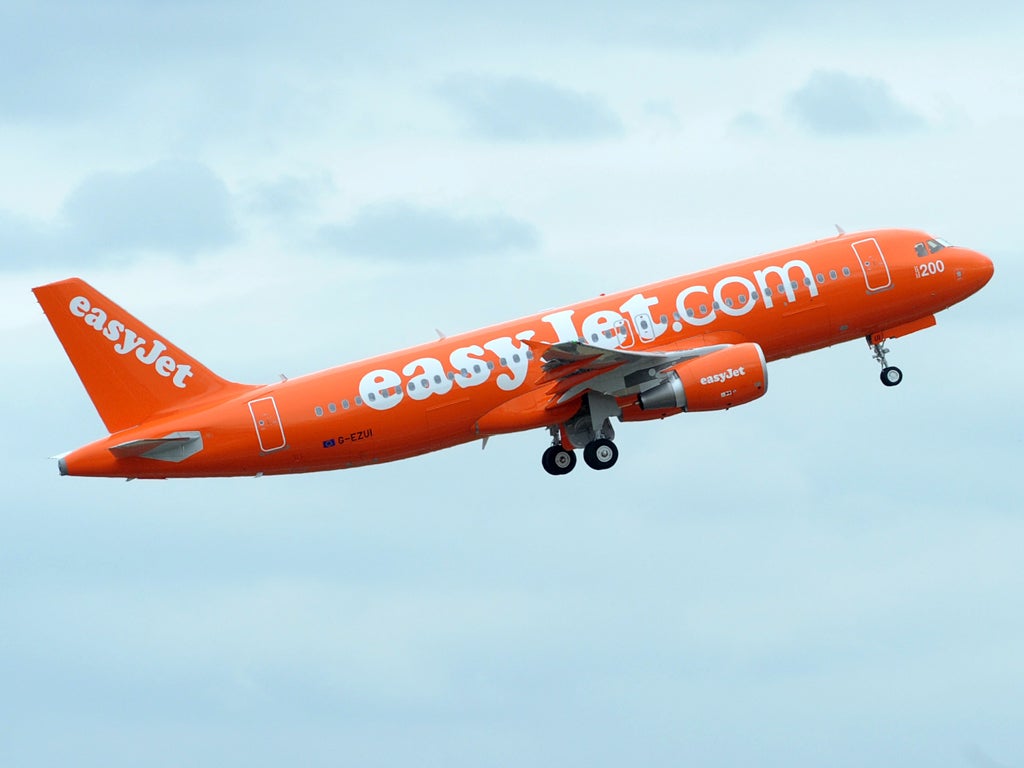Why is it acceptable for Sophie Morgan to be turned away from an Easyjet flight for being disabled?
Disabled Paralympics presenter Sophie Morgan was told she couldn't fly with Easyjet unless she had a companion with her.

Over the course of the summer, in the run up to and during the hugely successful Paralympics, a lot of talk was made about the ‘legacy’ that the games would leave behind.
A sense of hope and optimism swept the nation, as well as a feeling that London 2012 had changed people’s perceptions about disability, to the point that real changes would take place.
Sadly,less than two months after the flame was extinguished, it seems a lot of that has been forgotten; attitudes towards disabled people remain largely unchanged and they still face the same problems on a daily basis.
One story this week has really driven this point home and highlights the ongoing battle facing disabled people when they travel.
It concerns Sophie Morgan, part of Channel 4’s Paralympics presentation team this summer, and ironically last seen on Tuesday night’s Channel 4 News, reporting on the problems facing disabled people attempting to fly.
Sophie, who was paralysed in a car accident aged 18, is no stranger to long-distance travel. She has been across the globe to speak at the prestigious TED conferences, as well as for television work, so a short-haul Easyjet flight to Glasgow, for work with the BBC, did not appear to pose much of a problem.
Unfortunately this did not prove to be the case.
Sophie has claimed she was told that because she could not walk to an exit unaided, or climb a flight of stairs, that she would not be able to fly; with Easyjet maintaining that in order to be allowed to fly she would have to have a companion with her.
Only a day after reporting on the difficulties disabled people face while on planes, Sophie found herself unable to even board one:
“The anger and frustration I feel at this situation is hard to articulate. What has happened here, like with many other examples of disability discrimination, is that I have had my ability to choose taken away from me. I am utterly powerless to their policy,” she said.
“It's time that disabled people make the rules under which we have to live. It's wrong that the policies do not understand our basic human rights. I currently feel a mixture of fury and sadness, that despite all my efforts to live my life as a normal human being, I am unable to, and like so many others, I am having my limitations defined for me, my risks evaluated for me and my choices decided for me.”
She has received many messages of disbelief and support, including one from Dame Tanni Grey-Thompson, who herself has been a victim of discrimination from the airline in the past.
Tellingly, there were also some who didn’t think that what had happened was discrimination, saying that it was mentioned in the airline’s terms and conditions - this is where the real problem lies.
Having been born with a condition that has meant I have become steadily more dependent on the use of a wheelchair over the years, I am very aware of the problems facing independent disabled travellers, while also understanding the difficulties for those trying to accommodate them.
Although if I have any bias, it is perhaps not what you would expect. In fact all too often I have found myself accepting blatant discrimination as just a normal aspect of everyday life. Whether on buses, trains or planes, travel in a wheelchair is rarely straightforward.
As someone once said to me: “Is travel just expected to be a massive inconvenience just because someone uses a wheelchair?”
Now surely it really is time for attitudes to change. Disabled travellers have enough problems to overcome already, like the inaccessibility of the London Underground (a topic worthy of its own debate), without adding ill-conceived, outdated company policies and, as is often the case, people’s sheer inflexibility and unhelpfulness.
So rather than just talking with pride about the incredible feats of our Paralympians and the ‘incredible legacy’ that the games are going to leave behind, perhaps we, and international airlines, should actually ensure that they do.
Easyjet have since denied the claims made by Sophie.
An easyJet spokesperson said:
Unfortunately Sophie’s travel agent provided us with inaccurate information. Had we been given the correct information Sophie would have been able to fly unaccompanied.”
“easyJet takes this issue extremely seriously. Around 1000 passengers requiring special assistance travel with us every day and in a recent survey 88% of passengers with reduced mobility told us they were happy with the service and assistance they received.
“To ensure we can provide the best possible experience for our passengers earlier this year we have created an independent advisory group, chaired by David Blunkett MP, along with external experts from UK and European associations. The group was set up specifically to examine and overcome issues encountered by passengers with reduced mobility and ensure we fully comply with all related regulation.”
To read a detailed report into the difficulties facing disabled air travellers, conducted by the Muscular Dystrophy Campaign’s Trailblazers, click here
To read Sophie Morgan’s full story, click here

Join our commenting forum
Join thought-provoking conversations, follow other Independent readers and see their replies